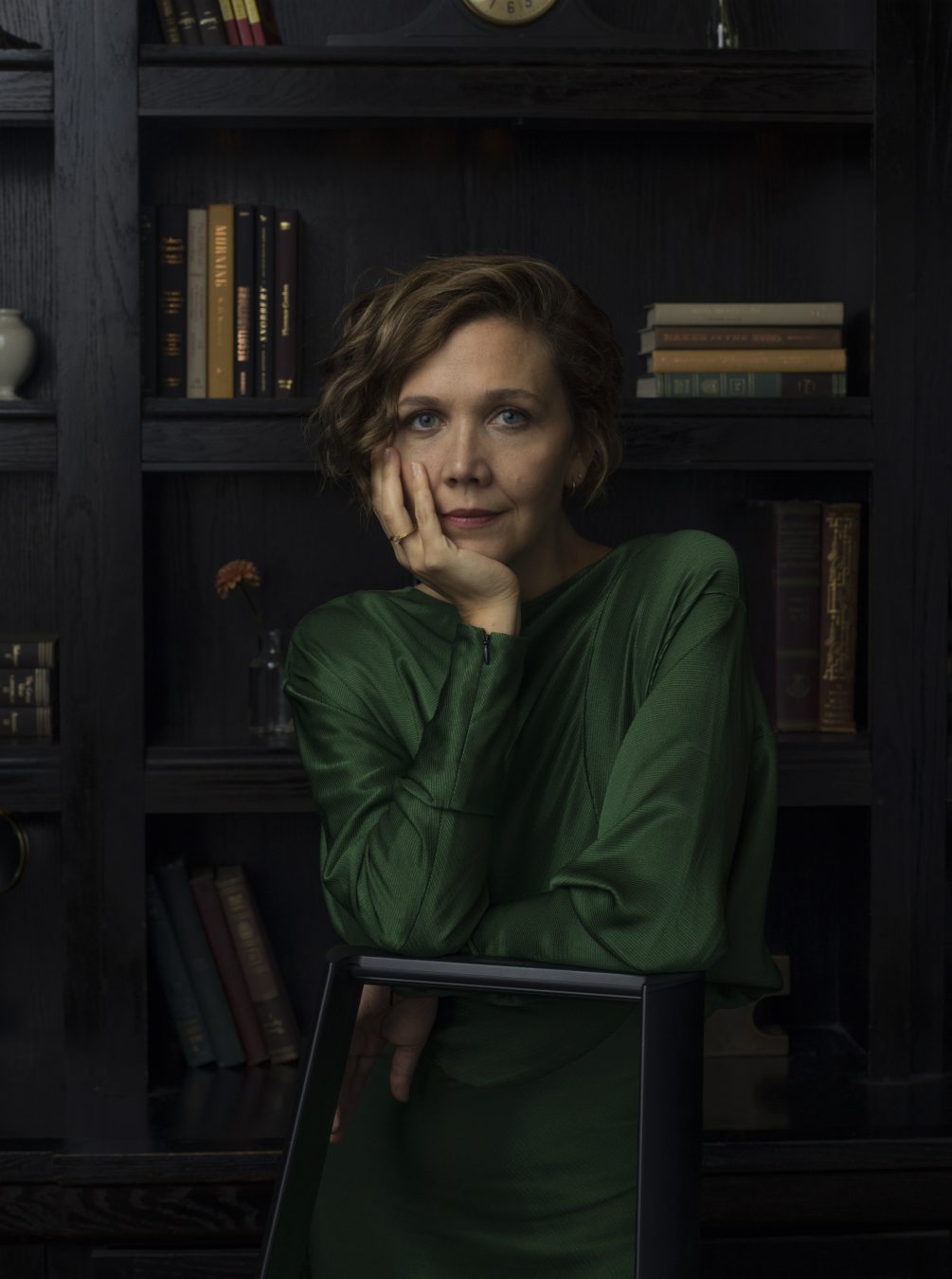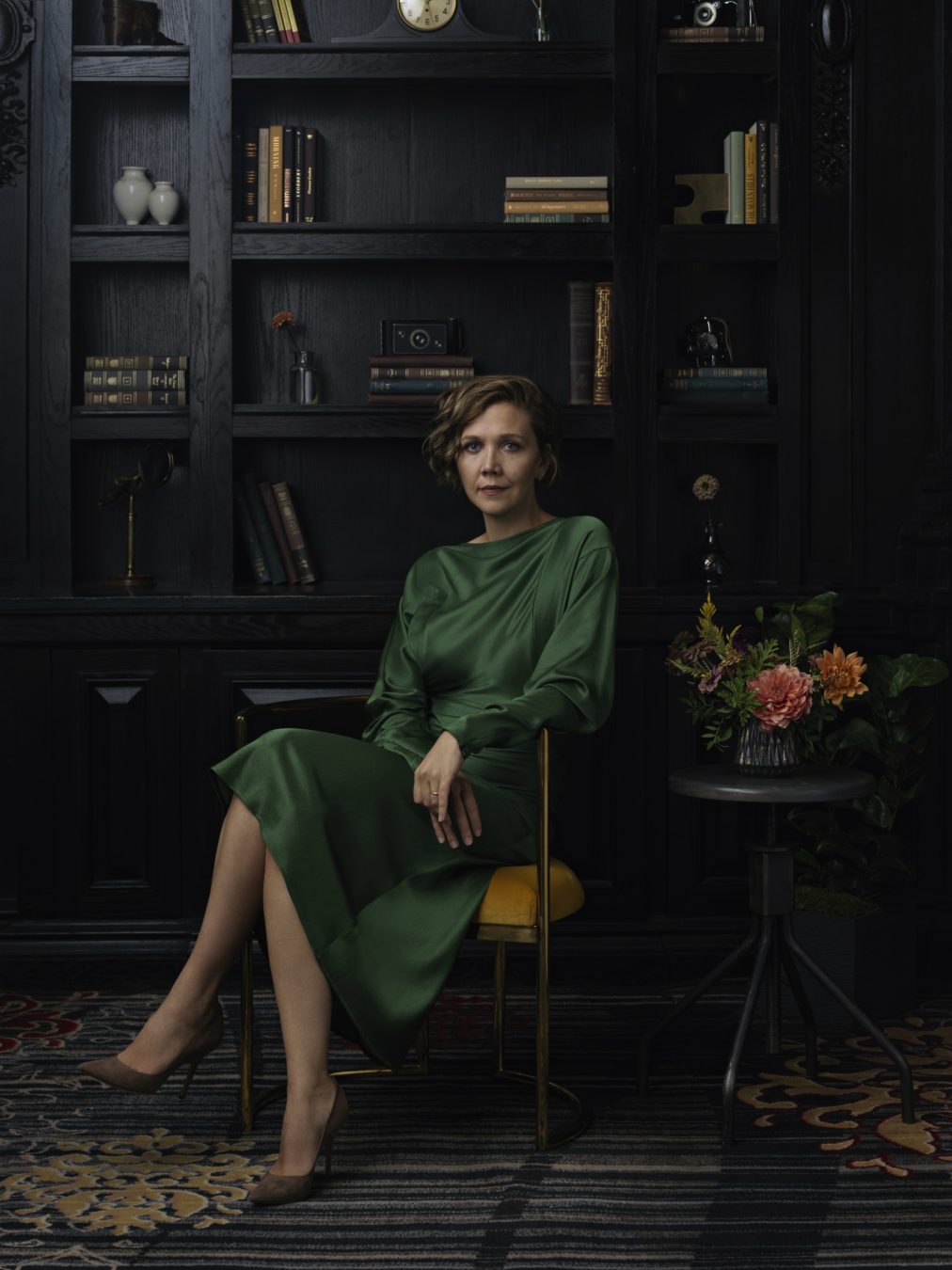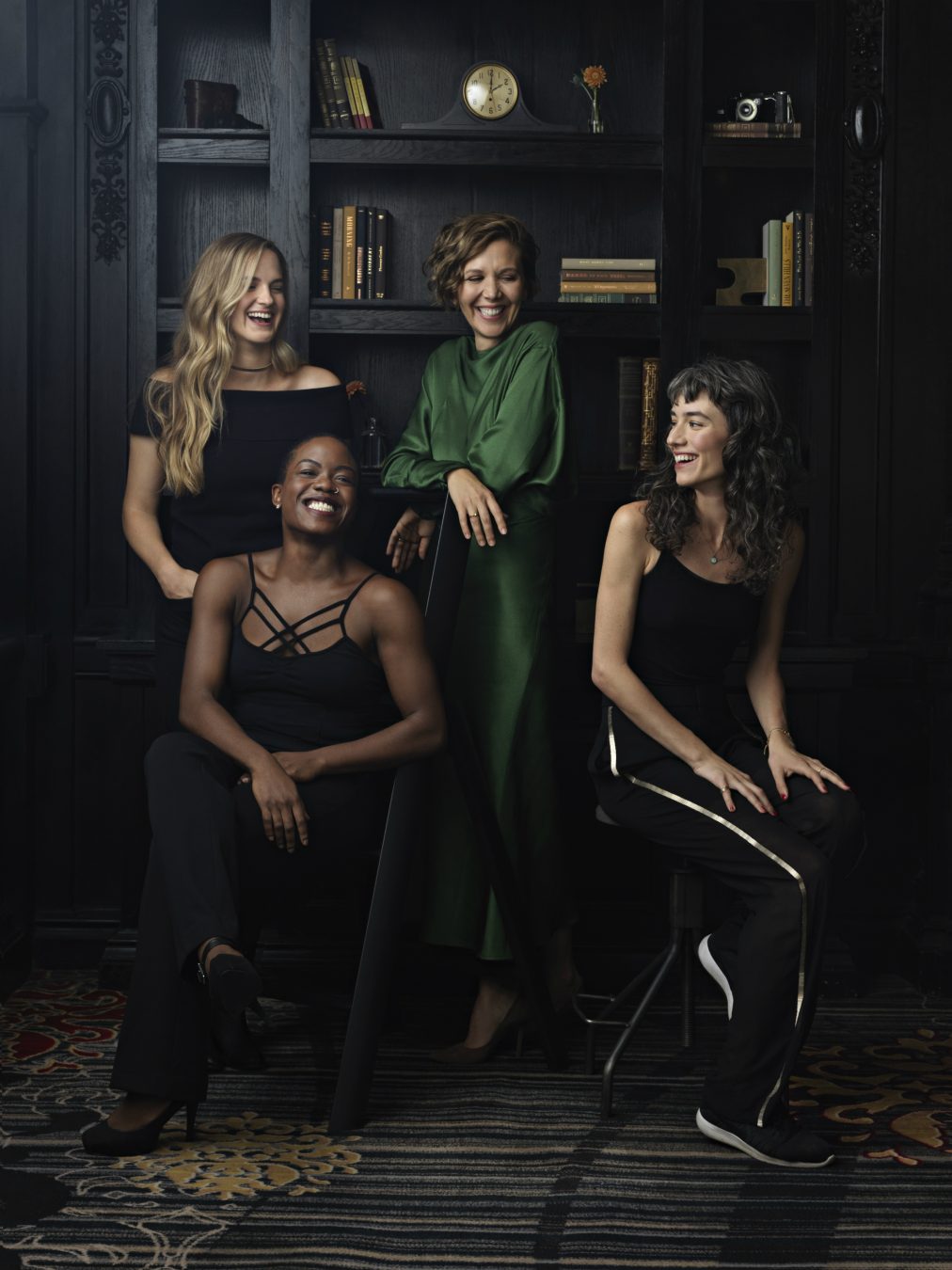A woman must have money and a room of her own if she is to write fiction; and that, as you will see, leaves the great problem of the true nature of woman and the true nature of fiction unsolved. I have shirked the duty of coming to a conclusion upon these two questions—women and fiction remain, so far as I am concerned, unsolved problems.
In 1928, Virginia Woolf stood in front of a group of women at The Arts Society at the University of Cambridge’s Newnham College and dissected the problems facing female writers (this speech, along with one other, was later turned into the acclaimed book A Room of One’s Own). “Why did men drink wine and women water?” she asked, reflecting on a luncheon she had recently attended. “Why was one sex so prosperous and the other so poor? What effect has poverty on fiction?” Interestingly and rather dishearteningly, much of what Woolf wrote is still relevant today, as women continue to fight for more inclusivity and equality in all aspects of the arts. For American actor and producer Maggie Gyllenhaal, A Room of One’s Own continuously provides a source of inspiration and fire.
“She talks in the book about how just because there’s a woman writer doesn’t make it an actual expression of something feminine—that we live in a male world, and I think also not just in 1928 when Woolf was writing, but now, too,” Gyllenhaal says, leaning forward in her seat on the grounds of Toronto’s Campbell House and sipping tea. “It’s obvious no matter how much we were wishful thinking the opposite, I think we live in a misogynistic world. So just being a woman doing her work doesn’t necessarily mean that you are able, having grown up in that world, to express that feminine element of yourself.”
Gyllenhaal, who starred in films such as The Dark Knight, Stranger than Fiction, and Crazy Heart (which earned her an Oscar nomination), has partnered with Marriott’s Autograph Collection hotel brand for a female Screenwriters in Residence program. Three chosen women get to spend a week in any Autograph Collection property (from New York’s The Algonquin, to Barcelona’s Cotton House, to Vancouver’s own The Douglas) free of charge, able to work on their screenplays without distractions or financial stressors. Essentially, they are being given rooms of their own.
“Just because a woman is writing, just because a woman is directing, it doesn’t mean that the product is an actual—Woolf uses the phrase “whole and entire”—expression of the feminine mind,” Gyllenhaal explains. “Woolf says we need money and a physical space of our own, but I think she also means you need space in your mind. You need the luxury of having space in your mind in order to express what’s inside it. So this is symbolic in a way, but when we [Autograph global brand marketing lead Amanda Altree] met, I was like, ‘You guys are a hotel group. What about you give, as a gift to women who are the winners of this prize, a room in one of your hotels to do their work for one week? And let’s see what’s in their mind. And let’s see if what we end up doing is creating work that is actually truly a feminine expression of something.’”
Part of Autograph Collection’s Indie Film Project in partnership with The Black List (an organization championing independent and under-appreciated screenplays), the Screenwriters in Residence program was celebrated in style at the 2018 Toronto International Film Festival. In addition to screening her new female-directed film The Kindergarten Teacher (which was picked up by Netflix after premiering at Sundance), Gyllenhaal came to Toronto to mark the Autograph initiative, for which she is the independent film advisor. That means the women who apply for the residency are chosen personally by her. “I’m looking for an articulation of an experience that I think feels human,” Gyllenhaal says. “And maybe also something that’s challenging. I’m not that interested in movies that just make you feel comfortable about yourself and your place in the world. I’m much more interested in movies that challenge you to assess yourself.” She read scripts shortlisted by The Black List and settled on three Los Angeles-based women for 2018: Sarah Jane Inwards, Amanda Idoko, and Chiara Towne.
Though the three writers have not yet decided where they each want to spend their week, they are all already buzzing with excitement about the freedom that the opportunity provides. Still, while incredibly grateful, they evidently remain level-headed about how far the industry still has to go. “There’s a lot of lip service, for sure, but the numbers are staying the same,” says Towne, who has written screenplays for director David Fincher and The Crown executive producer Tanya Seghatchian. “As much as there’s a lot of loudness around the conversation—the #TimesUp women are doing really incredible stuff and I think a lot of women are mobilizing in a way that’s very inspiring—I think we all don’t want to lose track of the fact that until the actual data changes, nothing has happened.” According to research done by advocacy group Women and Hollywood, of 2017’s 100 top-grossing films, women only made up 10 per cent of writers and eight per cent of directors.
Idoko, who has written for ABC and is currently working on an animated musical for Apple, agrees that there is a lot of work yet to be done. “I think we’re still at a place where people are afraid to take chances on new voices. It’s the thing of, ‘Oh, that woman works? Give her all the jobs,’” she says. “But you’re going out to women who are like, ‘I’m busy! Go to other women! There are other women who are not me in this industry who could be working!’ So I think it’s on all of us to try to lift up those voices to empower people to be taking chances on new voices and not just be like, ‘Well, that woman’s movie sold, let’s just give her everything.’”
Though Idoko, Towne, and Inwards only met when they landed in Toronto for TIFF, they chat like old chums and clearly developed an immediate kinship. For Inwards, whose script won the 2017 Nicholl Fellowship in Screenwriting from The Academy of Motion Picture Arts and Sciences, learning from Idoko has been particularly valuable. “I do mostly features, so it’s very solitary. And because of that, I haven’t had a lot of time to relate to a lot of women writers of colour and hear about their experiences,” she says. “It’s important to get together with other people and listen and learn to be a better ally. And to speak up when you have the chance—when women and people of colour are not in the room, and you are, and you’re an ally, and you can have a voice.” The three writers agree that people in positions of power on a film project could start doing their part by inquiring about staff salaries to ensure men and women at all levels, and of all backgrounds, are being paid equally.
Thanks to #TimesUp and #MeToo, the conversation around gender parity is beginning to change. But what is required now is taking that talk and turning it into action. “We’re waking up to things that many of us have accepted for most of our lives and saying, ‘Actually, no, it’s true: that didn’t feel good, that didn’t feel right, that isn’t right, I won’t accept it anymore,’” Gyllenhaal says. “And I’m sure there are so many other things that are still happening all the time that we don’t even notice because we’ve swallowed them for so long.” For her, that is what The Kindergarten Teacher, which follows a woman’s obsession with her genius student, is really exploring. “It’s about a woman who twisted herself around and swallowed so much for so long that she literally lost her mind. And what are the consequences of starving a woman’s mind?” she says, adding that the Autograph residency is the opposite of that: instead of starving a woman’s mind, it feeds it. “Even if it’s just a week—God, for me? A week, in a room, by myself, to do my work—in some ways it’s symbolic, and in other ways it’s just straight-up amazing.”
Read more from our Arts section.











